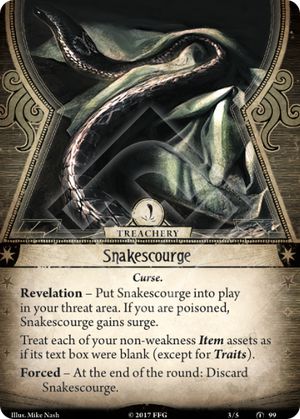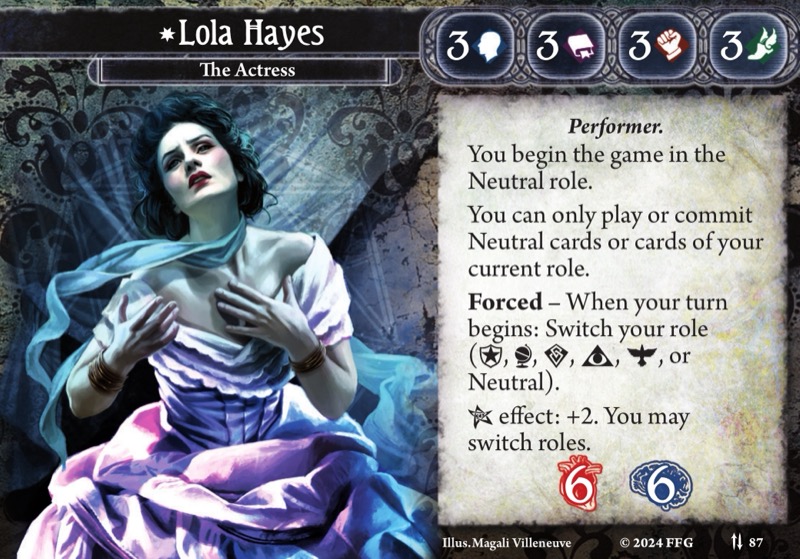
what will happend if it works on The Chthonian Stone(sorry i cant type hyperlink in this site)?Should i put those chaos tokens i sealed back before it ends?Or it just keep sealing them,and ingnore the autofail discard effect?

what will happend if it works on The Chthonian Stone(sorry i cant type hyperlink in this site)?Should i put those chaos tokens i sealed back before it ends?Or it just keep sealing them,and ingnore the autofail discard effect?

I have never used Summon Servitor, but I do not intend for this review to be based on the concept of actually playing the card and utilizing its ability to perform as a remote agent. I'm sure there are some interesting edge cases, something something Luke Robinson, but I haven't explored those possibilities of this card, though perhaps one day.
What I am here to comment on is that this card lets you do something oddly specific that is very hard to find: Return an asset of ANY kind from your board to your hand. Rogues can do this with Item assets in several different ways, Scavenging can pull items from your discard, and William Yorick can play any type of asset from his discard. But there aren't many ways to remove literally any asset from your board, with no restrictions on level, class, or type.
Why does this matter? What's so important about the ability to put ANY asset (besides weakness/permanents) back into your hand? Well, we can start with the above Luke and his Gate Box. Replaying it is a way of recharging it, although if you're spending 3 XP and 2 card slots you can do way better. There are plenty of ways to place charges/secrets/ammo/supplies on cards, and they'd all do a better job than this card. But consider for a moment things that DON'T use those kind of resources, and instead use weird ones you can't refill. Think about: -Daisy Walker and her Archive of Conduits -Dexter Drake/Sefina Rousseau wanting to cheat their Geas a little bit -Building around Hyperphysical Shotcaster as a Mystic and not having access to Rogue or Survivor level 0 cards. -Father Mateo wanting to get a couple extra uses out of The Codex of Ages -Sister Mary trying to repair her Guardian Angel
Okay, ya, those are all the use cases I could find, and they aren't a lot, and the only one that seems all that decent to me is the first one. But there's a LOT of potential here depending on future investigators/assets that are released.

Preston really likes this card.
With this in play, he can use 1 Favor card of the Service suite (like Small Favor) per turn, using the fully enhanced effects if he so needs, he calls for backup at almost maximum effect with his red assets, he gets a discount for the numerous exceptional green relics that give testless advantages to him and his companions and can even consider some interesting rituals like Double, double.
Very XP intensive overall, but he can pick and choose what best fits the team and the campaign.

For her replacement weakness/signatures: Improvisation and Crisis of Identity are listed under Deckbuilding Requirements for Lola Hayes. You may choose to instead replace those four cards with all five versions of Leading Lady, as well as Samuel Blake.
So if you haven't noticed, there's 5 versions of Leading Lady, one for each class.

Combos well with Counterpunch. Enemy upon you but no weapon in play? No problem: play the Remington Model 1858 to trigger Attack of Opportunity. Play Counterpunch too. 4 damage done before they get a chance to hit you!